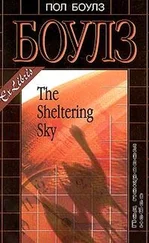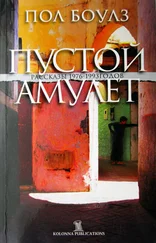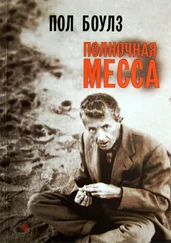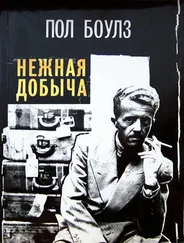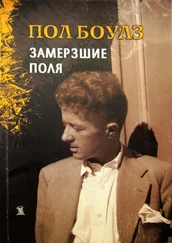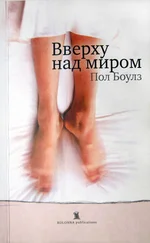Пол Боулз - Let it come down
Здесь есть возможность читать онлайн «Пол Боулз - Let it come down» весь текст электронной книги совершенно бесплатно (целиком полную версию без сокращений). В некоторых случаях можно слушать аудио, скачать через торрент в формате fb2 и присутствует краткое содержание. ISBN: , Жанр: Современная проза, на английском языке. Описание произведения, (предисловие) а так же отзывы посетителей доступны на портале библиотеки ЛибКат.
- Название:Let it come down
- Автор:
- Жанр:
- Год:неизвестен
- ISBN:1-931082-19-7
- Рейтинг книги:5 / 5. Голосов: 1
-
Избранное:Добавить в избранное
- Отзывы:
-
Ваша оценка:
- 100
- 1
- 2
- 3
- 4
- 5
Let it come down: краткое содержание, описание и аннотация
Предлагаем к чтению аннотацию, описание, краткое содержание или предисловие (зависит от того, что написал сам автор книги «Let it come down»). Если вы не нашли необходимую информацию о книге — напишите в комментариях, мы постараемся отыскать её.
Let it come down — читать онлайн бесплатно полную книгу (весь текст) целиком
Ниже представлен текст книги, разбитый по страницам. Система сохранения места последней прочитанной страницы, позволяет с удобством читать онлайн бесплатно книгу «Let it come down», без необходимости каждый раз заново искать на чём Вы остановились. Поставьте закладку, и сможете в любой момент перейти на страницу, на которой закончили чтение.
Интервал:
Закладка:
Little by little the uncertain trail led downward across regions of rough pastureland and stony heaths. It was with astonishment that he saw on a hillside a group of cows grazing. During the morning he had grown used to thinking of himself as the only living creature under this particular sky. If he were coming to a village, so much the worse; he would continue anyway. His hunger, which long ago had reached mammoth proportions, no longer expressed itself as such, but rather as a sensation of general nervous voraciousness which he felt could be relieved only by more kif. And so he sat down and smoked some more, feeling his throat turn a little more inevitably to the iron it was on its way to becoming. If the cows had surprised him, the sight now of a dozen or more natives working in a remote field did not. Only their minuteness amazed him; the landscape was so much larger than it looked. He sat on a rock and stared upward. The sky seemed to have reached a paroxysm of brilliancy. He had never known it was possible to take such profound delight in sheer brightness. The pleasure consisted simply in letting his gaze wander over the pure depths of the heavens, which he did until the extreme light forced him to look away.
Here the terrain was a chorus of naked red-gray valleys descending gently from the high horizon. The clumps of spiny palmetto, green nearby, became black in the distance. But it was hard to tell how far away anything was in this deceptive landscape. What looked nearby was far off; the tiny dots which were the cattle in the foreground proved that — and if his eye followed the earth’s contours to the farthest point, the formation of the land there was so crude and on such a grand scale that it seemed only a stone’s throw away.
He let his head drop, and feeling the sun’s heat on the back of his neck, watched a small black beetle moving laboriously on its way among the pebbles. An ant, hurrying in the opposite direction, came up against it; apparently the meeting was an undesirable one, for the ant changed its course and dashed distractedly off with even greater haste. «To see infinity in a grain of sand». The line came to him across the empty years, from a classroom. Outside was the winter dusk, dirty snow lay in the empty lots; beyond, the traffic moved. And in the stifling room, overheated to bursting, everyone was waiting for the bell to ring, precisely to escape from the premonition of infinity that hung so ominously there in the air. The feeling he associated with the word infinity was one of physical horror. If only existence could be cut down to the pinpoint of here and now, with no echoes reverberating from the past, no tinglings of expectation from time not yet arrived! He stared harder at the ground, losing his focus so that all he saw was a bright blur. But then, would not the moment, the flick of the eyelid, like the grain of sand, still be imponderably weighted down with the same paralyzing element? Everything was part of the same thing. There was no part of him which had not come out of the earth, nothing which would not go back into it. He was an animated extension of the sunbaked earth itself. But this was not quite true. He raised his head, rumbled, lit another pipe. There was one difference, he told himself as he blew the smoke out in a long white column that straightway broke and dissolved. It was a small difference, self-evident and absurd, and yet because it was the one difference that came to him then, it was also the only suggestion of meaning he could find in being alive. The earth did not know it was there; it merely was. Therefore living meant first of all knowing one was alive, and life without that certainty was equal to no life at all. Which was surely why he kept asking himself: am I really here? It was only natural to want such reassurance, to need it desperately. The touchstone of any life was to be able at all times to answer unhesitatingly: «Yes». There must never be an iota of doubt. A life must have all the qualities of the earth from which it springs, plus the consciousness of having them. This he saw with perfect clarity in a wordless exposition — a series of ideas which unrolled inside his mind with the effortlessness of music, the precision of geometry. In some remote inner chamber of himself he was staring through the wrong end of a telescope at his life, seeing it there in intimate detail, far away but with awful clarity, and as he looked, it seemed to him that now each circumstance was being seen in its final perspective. Always before, he had believed that, although childhood had been left far behind, there would still somehow, some day, come the opportunity to finish it in the midst of its own anguished delights. He had awakened one day to find childhood gone — it had come to an end when he was not looking, and its elements remained undefinable, its design nebulous, its harmonies all unresolved. Yet he had felt still connected to every part of it by ten thousand invisible threads; he thought he had the power to recall it and change it merely by touching these hidden filaments of memory.
The sun’s light filtered through his closed eyelids, making a blind world of burning orange warmth; with it came a corresponding ray of understanding which, like a spotlight thrown suddenly from an unexpected direction, bathed the familiar panorama in a transforming glow of finality. The years he had spent in the bank, standing in the teller’s cage, had been real, after all; he could not call them an accident or a stop-gap. They had gone by and they were finished, and now he saw them as an unalterable part of the pattern. Now all the distant indecisions, the postponements and unsolved questions were beyond his reach. It was too late to touch or change anything. It always had been too late, only until now he had not known it. His life had not been the trial life he had vaguely felt it to be — it had been the only one possible, the only conceivable one.
And so everything turned out to have been already complete, its form decided and irrevocable. A feeling of profound contentment spread through him. The succession of ideas evaporated, leaving him with only the glow of well-being attendant upon their passage. He looked among the pebbles for the beetle; it had disappeared along the path. But now he heard voices, nearby. A group of turbaned Berbers came past, and looking at him without surprise went on, still conversing. Their appearance served to bring him back from the interior place where he had been. He took the pipe to pieces, put it away. Feeling drunk and light-headed, he rose and followed behind them at a discreet distance. The path they presently chose led over a hill and down — down across a wilderness of cactus, through shady olive groves (the decayed trunks were often no more than wide gnarled shells), over cascades of smooth rocks, through meadows dotted with oleander bushes, becoming finally a narrow lane bordered on either side by high holly. Here it twisted so frequently that he lost sight of the men several times, and eventually they disappeared completely. Almost at the moment he realized they were gone, he came unexpectedly out onto a belvedere strewn with boulders, directly above the rooftops, terraces and minarets of the town.
XXIII
Sometimes on Friday mornings, Hadj Mohammed Beidaoui would send one of his older sons to fetch the last-born, Thami, where he was playing in the garden, and the little boy would be carried in, squirming to prevent his brother from covering his cheeks with noisy kisses all the way. Then he would be placed on his father’s knee, his face would momentarily be buried in the hard white beard, and he would hold his breath until his father’s face was raised again, and the old man began to pinch his infant cheeks and smooth his hair. He remembered clearly his father’s ivory-colored skin, and how beautiful and majestic the smooth ancient face had seemed to him framed in its white silk djellaba. When he thought of it now, perhaps he was referring in memory to one particular morning, a day radiant as only a day of spring in childhood can be, when his father, after sprinkling him with orange flower water until he was quite wet and almost sick from the sweet smell, had taken him by the hand and led him through the streets and parks of sunlight and flowers to the mosque of the Marshan, through the streets openly, where everyone they met, the men who kissed the hem of Had] Mohammed’s sleeve, and those wrho did not, could see that Thami was his son. And Abdelftah and Abdelmalek and Hassan and Abdallah had all been left home! That was the most important part. The conscious campaign to seek to gain more than his share of his father’s favor dated from that morning; he had waged it unceasingly from then until the old man’s death. Then, of course, it was all over. The others were older than he, and by that time disliked him, and he returned their antipathy. He began to bribe the servants to let him out of the house, and this got several of them into trouble with Abdelftah, master of the household then, who was short-tempered and flew into a rage each time he learned that Thami had escaped into the street. But it was the street with its forbidden delights that tempted the boy more than anything else, once the world had ceased being a place where the greatest good was to climb into his father’s lap and listen to the flow of legends and proverbs and songs and poems that he wished would never come to an end. There was one song he still recalled in its entirety. It went: Ya ouled al harrata, Al mallem Bouzekri . His father had told him all the boys of Fez ran through the streets singing it when rain was needed. And there was one proverb which he associated intimately with the memory of his father’s face and with the sensation of being held by him, surrounded by the mountains of brocade-covered cushions, with the great lanterns and high looped draperies above, and no matter how often his father acceded to his pleas to repeat it, always it was fresh with a mysterious, magical truth when he heard it.
Читать дальшеИнтервал:
Закладка:
Похожие книги на «Let it come down»
Представляем Вашему вниманию похожие книги на «Let it come down» списком для выбора. Мы отобрали схожую по названию и смыслу литературу в надежде предоставить читателям больше вариантов отыскать новые, интересные, ещё непрочитанные произведения.
Обсуждение, отзывы о книге «Let it come down» и просто собственные мнения читателей. Оставьте ваши комментарии, напишите, что Вы думаете о произведении, его смысле или главных героях. Укажите что конкретно понравилось, а что нет, и почему Вы так считаете.

